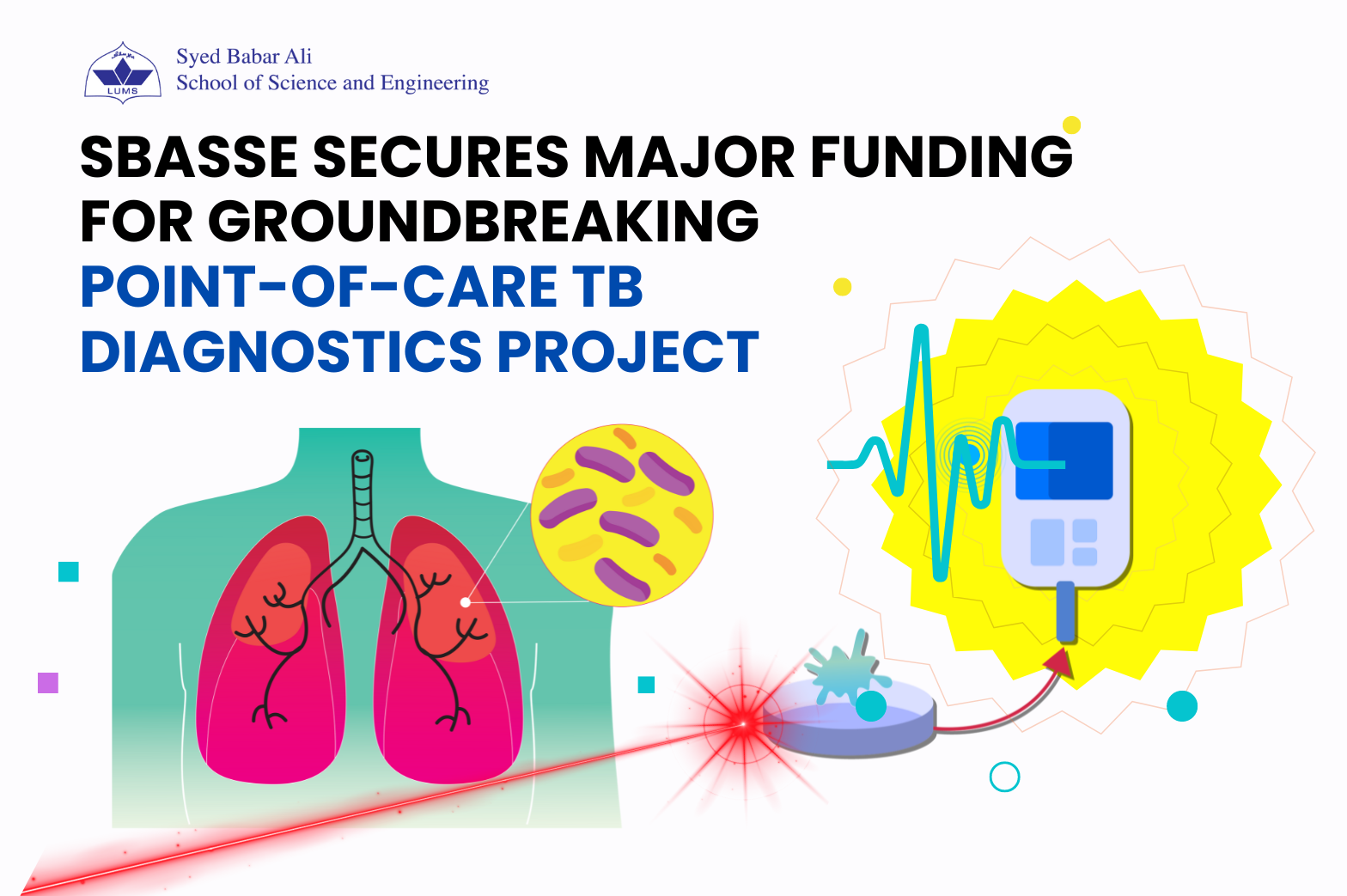
SBASSE secures major funding for groundbreaking point-of-care TB diagnostics project
A multidisciplinary team from Syed Babar Ali School of Science and Engineering at LUMS has secured international funding for an innovative project to transform tuberculosis (TB) diagnosis in Pakistan and beyond. This achievement results from a collaborative effort between SBASSE LUMS, Gulab Devi Hospital Lahore, and the University of Bergen, Norway.
This funding opportunity arose from a Norwegian Research Council call that required a partnership between a Norwegian organization and groups in low- and middle-income countries to tackle pressing health challenges. The project includes teams from LUMS, Gulab Devi Hospital in Lahore, and the University of Bergen, Norway. The LUMS team consists of Dr. Shaper Mirza from the Department of Life Sciences, Dr. Basit Yameen from the Department of Chemistry and Chemical Engineering, and Dr. Imran Cheema (Pakistan side PI) from the Department of Electrical Engineering. The other team members include Dr. Atiqa Ambreen from Gulab Devi Hospital Lahore and Dr. Tehmina Mustafa (Norway side PI) from the University of Bergen, Norway.
TB continues to be a major health challenge, particularly in low- to middle-income countries like Pakistan, where diagnostic tools are often expensive, slow, and difficult to access. The project, titled "Advancing Tuberculosis Diagnosis in Children and Adults by Developing Point-of-Care Optical Devices," builds on innovative optical diagnostic platforms. These platforms utilize Raman spectroscopy and optical fiber cavity ring-down spectroscopy, providing a more accessible solution for diagnosing tuberculosis. Unlike existing tests, which rely on costly lab facilities, this device will be simple enough for non-specialists to use, making it ideal for deployment in resource-limited settings.
LUMS team will work closely with Gulab Devi Hospital to test the device on diverse biological samples, including sputum, breath condensate, urine, and fine needle aspirates. This approach is a first in TB diagnostics, with the potential to drastically improve early detection, particularly in children and patients with extra-pulmonary TB.
This interdisciplinary project unites electrical engineers, biologists, biochemists, data analysts, and medical specialists from Norway and Pakistan and represents a significant step forward in global health innovation. The goal is to develop a diagnostic tool that can be scaled for widespread use in low-income countries, dramatically reducing the burden of TB and contributing to its global eradication.
We look forward to sharing further developments as this exciting project progresses!

